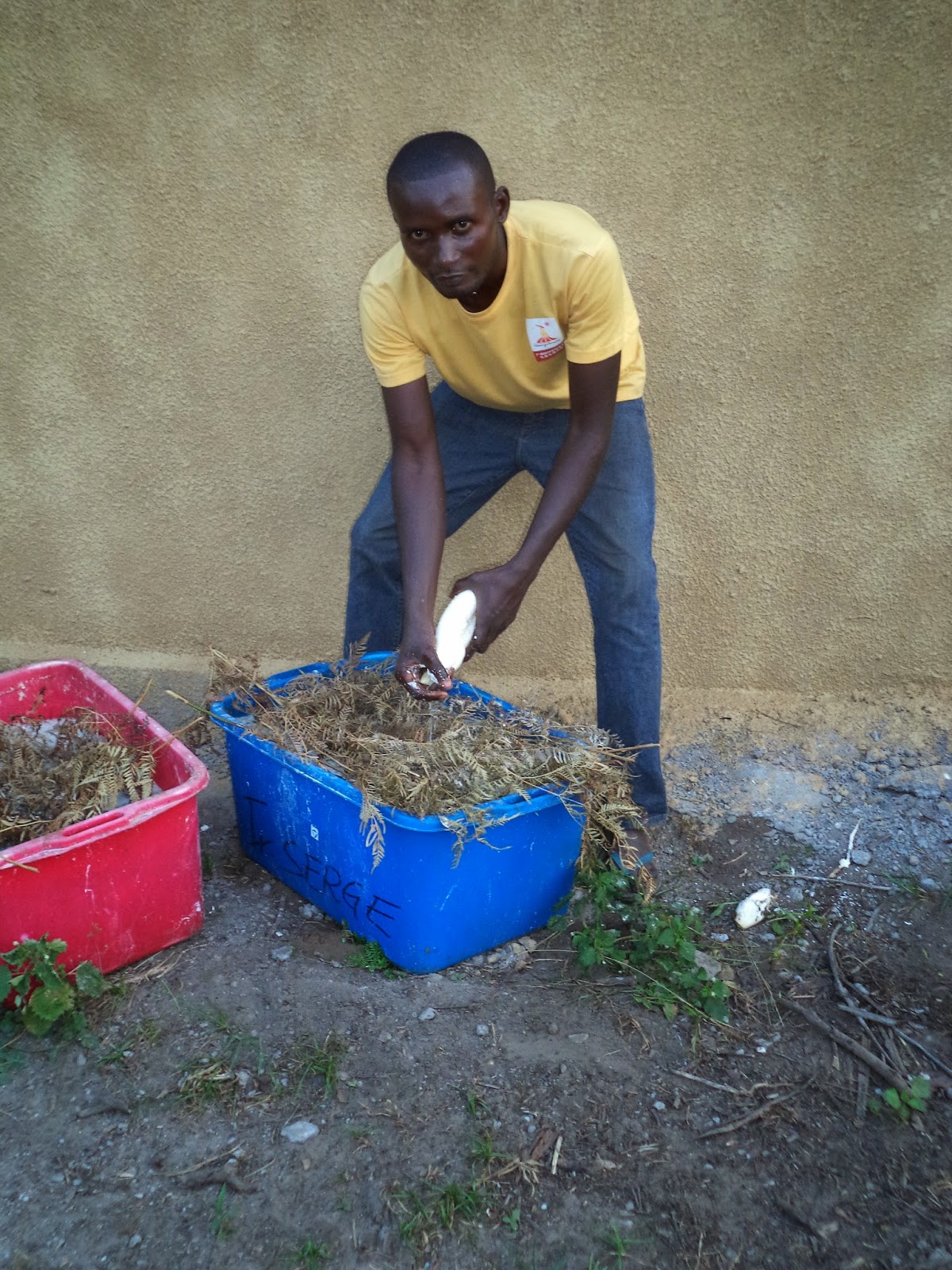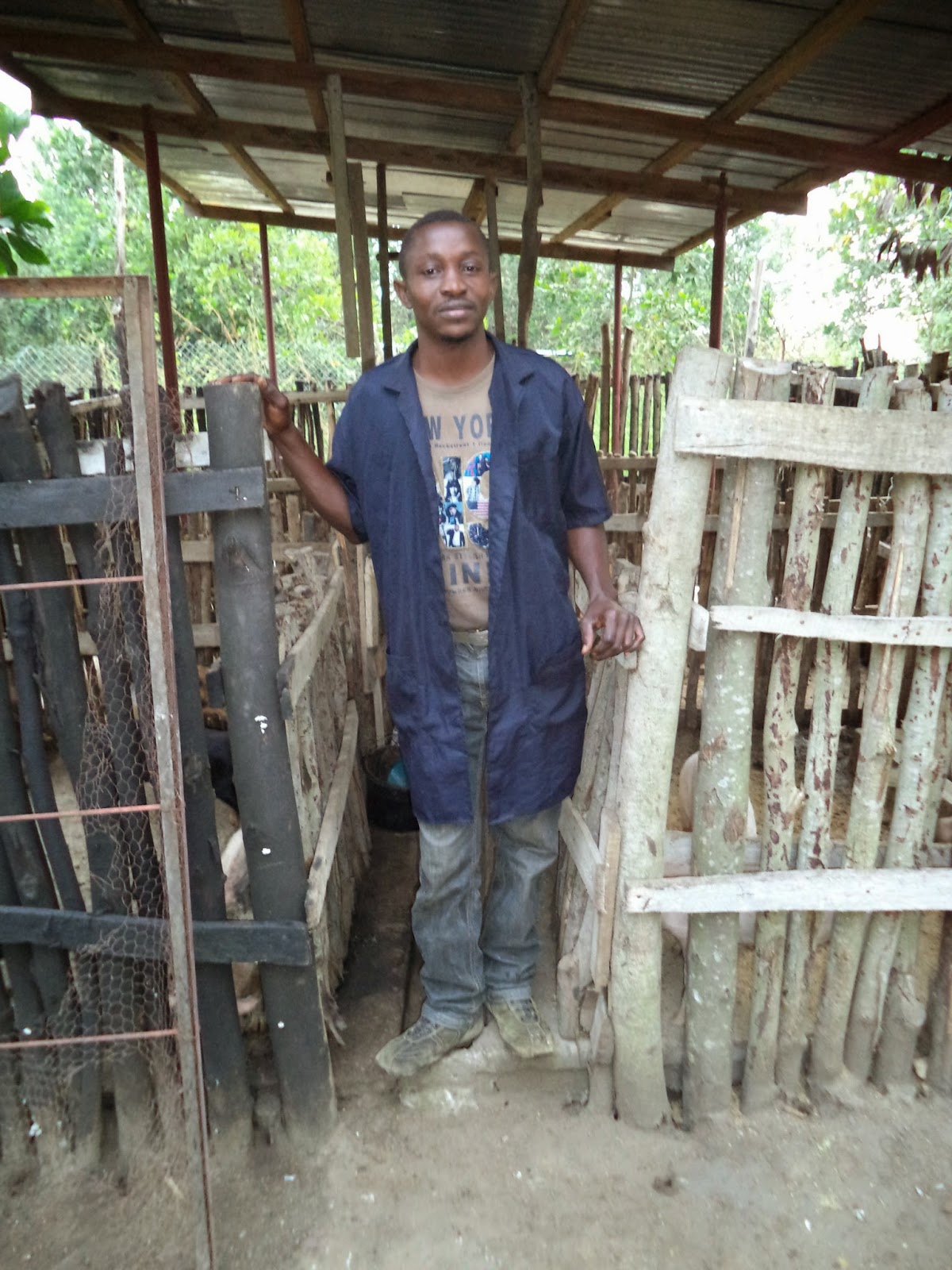Joseph Ngalu Ngalu
Serge Makelela
“For the
first time, we put in place hectares of soya and cassava cross-culture. We
learned that we wouldn’t reach the standard yields. In fact the predictions were
made on the basis of a standard yield, but the actual yields were lower. Maybe
we should have taken into consideration the fact that soy was planted in
association with cassava and acacia, as opposed to a monoculture. (...)
It’s an innovative project, where we associate acacia trees, cassava, fruit
trees... With this experience
I feel well-equipped for the future. I will work well because of this project.
Personally, I learned a lot. (...) There is an exchange of experience
with the others. I acquired a
lot of experience with my fellow incubatees. We have to continue in this
direction, and accumulate capital to be able to continue. We are pioneers.
The project must go forward . “
Nestor Mulamba
“The
project allowed us to put the theory into practice. It allowed me to work and
manage 2.5 ha. (...) The niebe crop didn’t adapt well to the season. We
couldn’t harvest anything. I struggled, re-planted and this time it’s working. I did my investigation, re-read a
few authors… it looks like niebe isn’t adapted to the long season. [The project]
allowed me to manage financial resources, human resources and material
resources. (...) At the very beginning, it was difficult. The workers think they know how to
do things, and we also have our own method. There are contradictions. We tried
to reconcile the methods and to adapt ourselves. Some of their methods waste
space. For cassava, they sow with a hoe. That way, the cuttings don’t
burn. (…) The future is better. I now feel capable of doing everything. The next cohorts will have models to
follow. “
Dady Makaya
“[With this
project] you can perfect your professional experience. It’s a service to the
Congolese nation. The country expects us to feed the population. Here I was
given the financial means, the material means, housing.... You have to have a
business plan, a very important tool for any future entrepreneur in order to
launch an activity. It’s the daily management of a private business, you need
to organize, you need to coordinate. You need to works hands-on, you need to
pay people. (...) I learned from the others, and the others learned from me. It
is important to integrate ourselves to their way of life (the peasants). “



